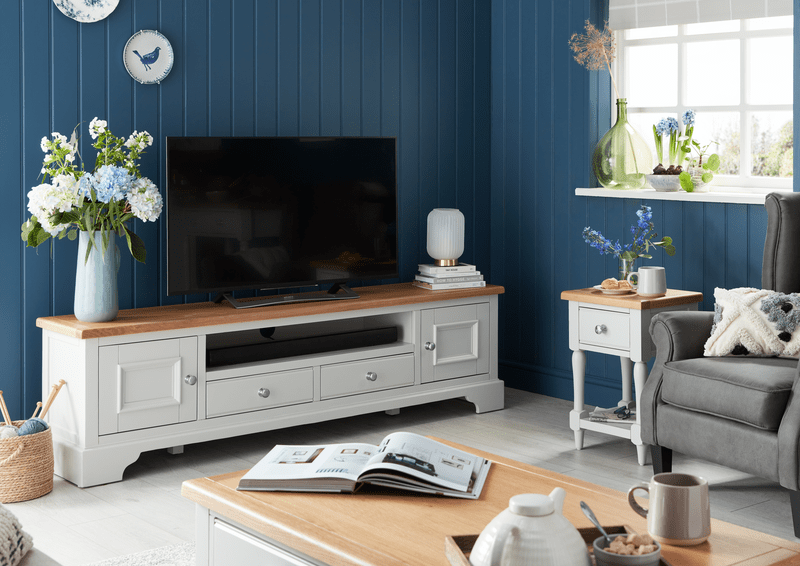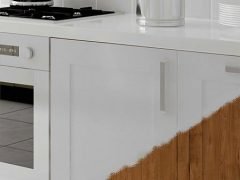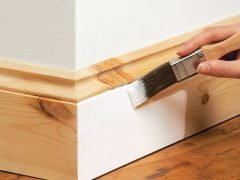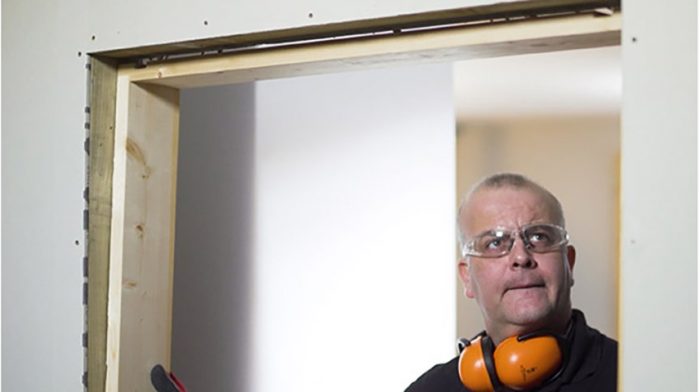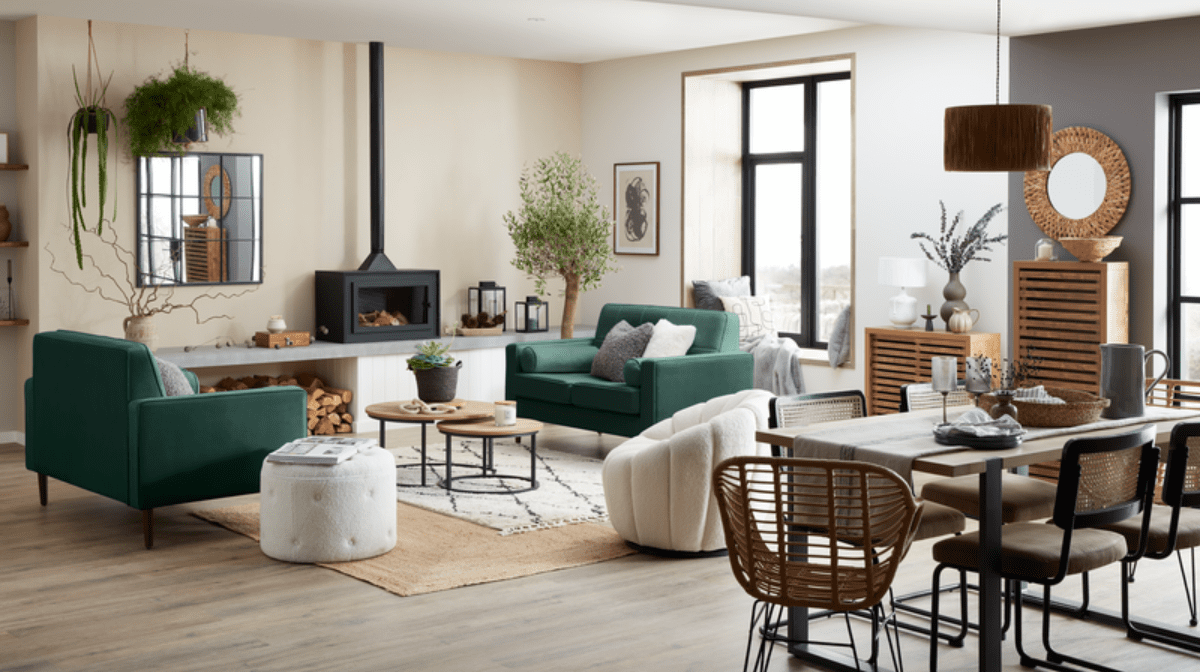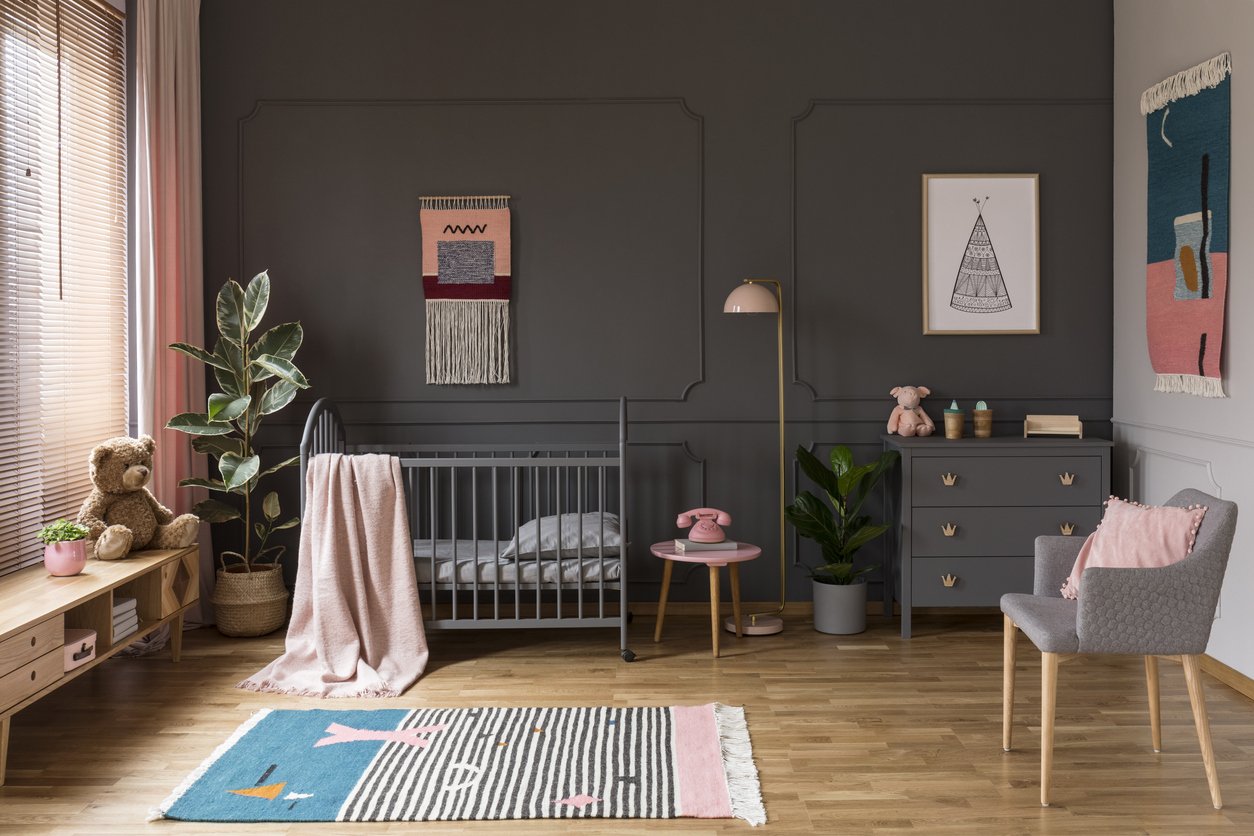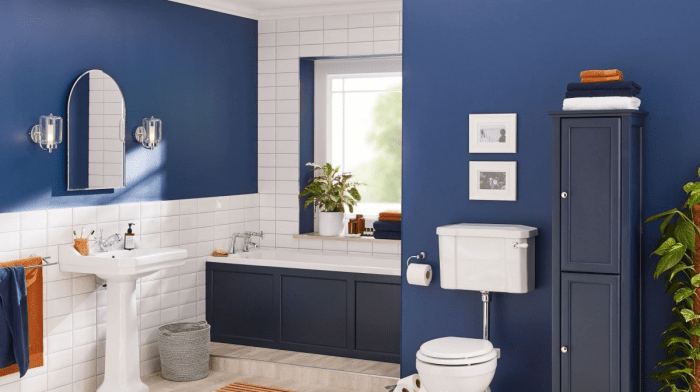Poor condition walls: If your walls are having trouble with mould, smoke or water damage, primer is the perfect solution for covering it up, as it’ll stop anything showing through once it’s painted over.
Wallpapered walls: Whether you’re leaving the wallpaper on or if stripping it off has left your walls looking rough, popping a coat of primer paint on first will leave it smooth as silk before the top coat painting starts.
Rooms that get humid: Wet rooms and bathrooms are more prone to leaching and mildew, so adding some primer gives your walls an extra layer of protection against damp issues.
Preparing a fresh surface: Brand new walls, whether they’re wood or drywall, love to soak up paint if they get the chance. Thankfully, a single coat of primer will stop that happening.
Covering up darker shades: Have you ever tried painting a light colour over a darker wall shade? Preventing your wall colour from poking though is as simple as adding primer, especially if you’re trying to lighten your room.
Sticking to tricky surfaces: It can be difficult to get paint to coat metal or plastic properly, but a specialised metal or paint primer can lay the foundations for a perfect paint coating.
Cutting down on imperfections: Chalky, dusty, powdery or salty (from an alkaline PH) walls will leave unsightly flecks if painted directly. Instead, wipe your walls down and add a layer of primer first.

